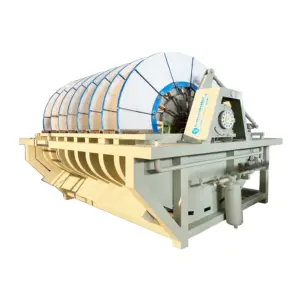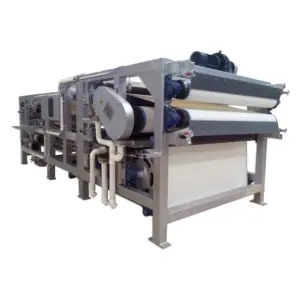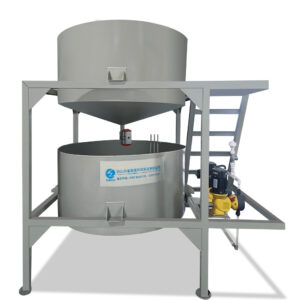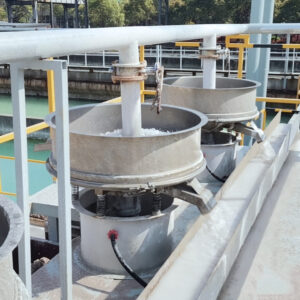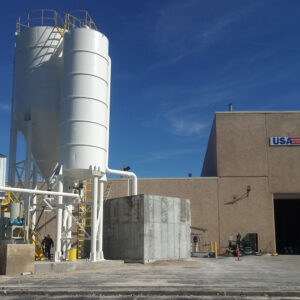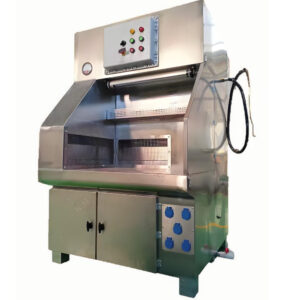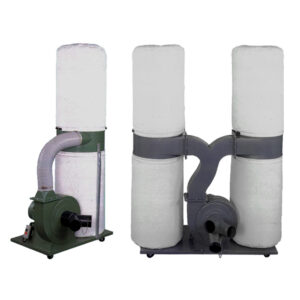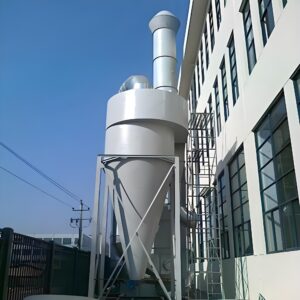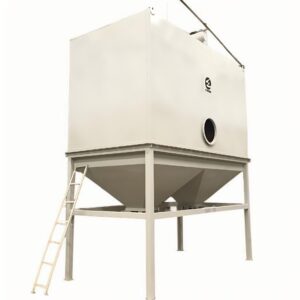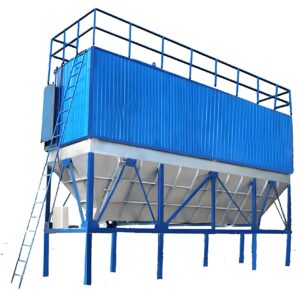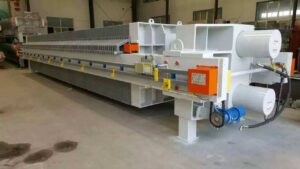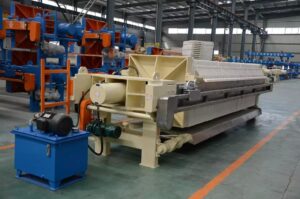Il mondo dei materiali per i telai delle filtropresse è complesso e affascinante, e la durata è un fattore chiave nella scelta del materiale giusto per le vostre esigenze di filtrazione. Poiché le industrie continuano a richiedere apparecchiature più efficienti e durature, la comprensione dei vari materiali disponibili per i telai e delle loro caratteristiche di durata è diventata sempre più importante. Questa guida completa si addentra nella complessità dei materiali dei telai delle filtropresse, esplorandone i punti di forza, le debolezze e le applicazioni ideali.
In questo articolo esamineremo i materiali più comuni per i telai delle filtropresse, tra cui l'acciaio inossidabile, l'acciaio al carbonio, il polipropilene e la ghisa. Parleremo dei loro fattori di durata, come la resistenza alla corrosione, la resistenza alla trazione e la capacità di sopportare pressioni e temperature elevate. Inoltre, analizzeremo le prestazioni di questi materiali in diversi ambienti e applicazioni industriali, aiutandovi a prendere una decisione informata quando scegliete una filtropressa per le vostre esigenze specifiche.
In questo viaggio attraverso il mondo dei materiali per i telai delle filtropresse, scopriremo le ultime innovazioni nella scienza dei materiali e come stanno plasmando il futuro della tecnologia di filtrazione. Dalle leghe avanzate ai materiali compositi, il panorama dei materiali per telai è in continua evoluzione e offre nuove possibilità di migliorare la durata e le prestazioni.
La scelta del materiale del telaio può avere un impatto significativo sulla longevità, l'efficienza e le prestazioni complessive di una filtropressa. La scelta del materiale giusto è fondamentale per garantire risultati di filtrazione ottimali e ridurre al minimo i costi di manutenzione nel tempo.
Quali sono le considerazioni principali nella scelta dei materiali del telaio della filtropressa?
Quando si tratta di selezionare il materiale del telaio appropriato per una filtropressa, entrano in gioco diversi fattori. La scelta del materiale può influire in modo significativo sulle prestazioni, sulla durata e sull'idoneità della pressa per applicazioni specifiche.
Le considerazioni principali includono la compatibilità chimica con le sostanze da filtrare, i requisiti di pressione e temperatura di esercizio e la durata complessiva necessaria per l'uso previsto. Inoltre, fattori come il costo, il peso e la facilità di manutenzione svolgono un ruolo importante nel processo decisionale.
Approfondendo l'argomento, è essenziale capire che i diversi settori hanno esigenze diverse per quanto riguarda i materiali dei telai delle filtropresse. Per esempio, l'industria alimentare e delle bevande può dare la priorità a materiali facili da pulire e resistenti alla crescita batterica, mentre l'industria chimica potrebbe concentrarsi maggiormente sulla resistenza alla corrosione e sulla capacità di sopportare ambienti difficili.
Secondo gli esperti del settore, il fattore più critico nella scelta dei materiali dei telai delle filtropresse è la compatibilità chimica. Una mancata corrispondenza tra il materiale del telaio e le sostanze filtrate può portare a corrosione prematura, contaminazione o addirittura a un guasto catastrofico dell'apparecchiatura.
| Materiale | Resistenza chimica | Pressione nominale | Intervallo di temperatura |
|---|---|---|---|
| Acciaio inox | Eccellente | Alto | Da -50°C a 550°C |
| Acciaio al carbonio | Buono | Molto alto | Da -20°C a 450°C |
| Polipropilene | Eccellente | Moderato | Da 0°C a 100°C |
| Ghisa | Fiera | Alto | Da -20°C a 300°C |
Come si comporta l'acciaio inossidabile come materiale per i telai delle filtropresse?
L'acciaio inox è una scelta popolare per i telai delle filtropresse, noto per la sua eccezionale durata e versatilità. Questo materiale offre una combinazione di forza, resistenza alla corrosione ed estetica che lo rende adatto a un'ampia gamma di applicazioni.
Uno dei vantaggi principali dell'acciaio inossidabile è la sua eccellente resistenza alla corrosione, particolarmente importante nei settori che trattano sostanze chimiche aggressive o ambienti ad alta umidità. Inoltre, i telai in acciaio inossidabile sono facili da pulire e da mantenere, il che li rende ideali per le applicazioni in cui l'igiene è un fattore critico.
Quando si parla di longevità, i telai in acciaio inossidabile spesso superano gli altri materiali. La loro capacità di resistere a pressioni e temperature elevate senza degradarsi li rende una scelta affidabile per i processi industriali più impegnativi. Inoltre, la resistenza intrinseca dell'acciaio inossidabile consente di costruire filtri pressa più grandi senza compromettere l'integrità strutturale.
Studi di settore hanno dimostrato che i telai delle filtropresse in acciaio inox, se sottoposti a una corretta manutenzione, possono avere una durata di vita fino a 20-30 anni, superando notevolmente i telai realizzati con materiali meno resistenti.
| Grado di acciaio inossidabile | Resistenza alla corrosione | La forza | Applicazioni tipiche |
|---|---|---|---|
| 304 | Buono | Moderato | Cibo e bevande |
| 316 | Eccellente | Alto | Trattamento chimico |
| 2205 | Superiore | Molto alto | Ambienti marini |
Quali sono i vantaggi e i limiti dell'acciaio al carbonio nei telai delle filtropresse?
L'acciaio al carbonio è un altro materiale ampiamente utilizzato per i telai delle filtropresse, apprezzato per l'elevata resistenza e l'economicità. Questo materiale è particolarmente adatto alle applicazioni che richiedono un'elevata resistenza alla pressione e stabilità strutturale.
Uno dei principali vantaggi dell'acciaio al carbonio è l'eccellente rapporto resistenza/peso, che consente di costruire filtri pressa robusti in grado di gestire applicazioni ad alta pressione. Inoltre, l'acciaio al carbonio è relativamente facile da fabbricare e saldare, il che può portare a costi di produzione inferiori rispetto ad altri materiali.
Tuttavia, è importante notare che l'acciaio al carbonio è più suscettibile alla corrosione rispetto all'acciaio inossidabile, soprattutto in ambienti con elevata umidità o sostanze chimiche aggressive. Per attenuare questo problema, i telai in acciaio al carbonio richiedono spesso rivestimenti protettivi o una manutenzione regolare per prevenire la ruggine e il deterioramento.
Le ricerche indicano che i telai delle filtropresse in acciaio al carbonio, adeguatamente rivestiti e sottoposti a manutenzione, possono avere una durata di 15-20 anni in condizioni moderate, il che li rende una scelta durevole ed economica per molte applicazioni industriali.
| Tipo di acciaio al carbonio | Resistenza allo snervamento | Resistenza alla trazione | Applicazioni tipiche |
|---|---|---|---|
| A36 | 250 MPa | 400-550 MPa | Costruzione generale |
| 1045 | 310 MPa | 565 MPa | Attrezzature per impieghi gravosi |
| 4140 | 655 MPa | 1020 MPa | Componenti ad alta sollecitazione |
Come si comporta il polipropilene rispetto ai telai in metallo in termini di durata?
Il polipropilene, un polimero termoplastico, offre una serie di caratteristiche uniche che lo rendono un'opzione interessante per alcune applicazioni di filtropressa. Sebbene non possa eguagliare la resistenza grezza dei telai metallici, il polipropilene eccelle in altre aree di durata.
Una delle caratteristiche principali del polipropilene è la sua eccezionale resistenza chimica. Questo materiale è inerte a un'ampia gamma di acidi, basi e solventi, il che lo rende ideale per le applicazioni nell'industria chimica. Inoltre, il polipropilene è naturalmente resistente alla corrosione e non arrugginisce, il che può essere un vantaggio significativo in ambienti ad alta umidità.
Tuttavia, il polipropilene presenta dei limiti per quanto riguarda la resistenza alla temperatura e alla pressione. È generalmente adatto per applicazioni a bassa pressione e ha un intervallo di temperatura più limitato rispetto ai telai in metallo. Nonostante queste limitazioni, i telai in polipropilene possono offrire una notevole longevità nelle giuste condizioni grazie alla loro resistenza alla degradazione chimica.
Alcuni studi hanno dimostrato che i telai dei filtri pressa in polipropilene possono durare fino a 10-15 anni in applicazioni in cui le loro proprietà di resistenza chimica vengono sfruttate appieno, come nel trattamento delle acque reflue o negli impianti di lavorazione chimica.
| Proprietà | Polipropilene | Acciaio inox | Acciaio al carbonio |
|---|---|---|---|
| Resistenza chimica | Eccellente | Buono | Fiera |
| Temperatura massima di esercizio | 100°C | 550°C | 450°C |
| Resistenza alla corrosione | Eccellente | Molto buono | Mediocre-Buono |
| Peso | Luce | Pesante | Pesante |
Che ruolo ha la ghisa nella durata del telaio della filtropressa?
La ghisa, un materiale tradizionale nelle attrezzature industriali, continua a svolgere un ruolo importante nella costruzione dei telai delle filtropresse. Nota per la sua elevata resistenza alla compressione e per le eccellenti proprietà di smorzamento delle vibrazioni, la ghisa offre caratteristiche di durata uniche.
Uno dei vantaggi principali della ghisa è la sua capacità di sopportare elevati carichi di compressione, che la rende adatta alle grandi filtropresse che devono gestire pressioni notevoli. Inoltre, le proprietà di smorzamento intrinseche della ghisa aiutano a ridurre le vibrazioni durante il funzionamento, contribuendo ad aumentare la longevità delle apparecchiature e a migliorare le prestazioni di filtrazione.
Tuttavia, la ghisa presenta alcuni limiti per quanto riguarda la resistenza alla corrosione. Pur avendo prestazioni migliori rispetto all'acciaio al carbonio, è comunque più suscettibile alla ruggine e al degrado rispetto all'acciaio inox o al polipropilene. Di conseguenza, i telai in ghisa richiedono spesso rivestimenti protettivi o una manutenzione regolare per garantire una durata a lungo termine.
I dati del settore suggeriscono che i telai delle filtropresse in ghisa, se ben mantenuti, possono avere una durata di vita di 15-25 anni, in particolare nelle applicazioni in cui l'elevata resistenza alla compressione e le proprietà di smorzamento delle vibrazioni sono elementi preziosi.
| Tipo in ghisa | Resistenza alla trazione | Resistenza alla compressione | Applicazioni tipiche |
|---|---|---|---|
| Ferro grigio | 140-415 MPa | 570-1290 MPa | Grandi filtropresse |
| Ferro duttile | 414-1380 MPa | 620-1150 MPa | Componenti ad alta sollecitazione |
| Ferro bianco | 350-550 MPa | 1380-1725 MPa | Parti resistenti all'usura |
Che peso hanno i materiali compositi nel futuro della durata dei telai delle filtropresse?
Con il continuo progredire della scienza dei materiali, i materiali compositi si stanno affermando come potenziali cambi di rotta nel mondo della durata dei telai delle filtropresse. Questi materiali ingegnerizzati combinano le proprietà di due o più materiali costitutivi per creare un prodotto con caratteristiche migliorate.
I materiali compositi offrono la possibilità di ottenere montature più leggere rispetto a quelle tradizionali in metallo, pur mantenendo un'elevata resistenza e durata. Inoltre, alcuni compositi possono essere progettati per avere un'eccellente resistenza chimica e stabilità termica, risolvendo così molteplici problemi di durata in un unico materiale.
Un'area in cui i compositi sono particolarmente promettenti è la resistenza alla corrosione. Combinando materiali con proprietà complementari, è possibile creare telai che offrono una protezione superiore contro gli attacchi chimici e il degrado ambientale. Questo potrebbe portare a un significativo allungamento della vita utile delle filtropresse in ambienti industriali difficili.
Recenti ricerche nel campo della scienza dei materiali suggeriscono che i telai avanzati delle filtropresse in materiale composito potrebbero offrire una vita utile di 25-30 anni o più, anche in condizioni operative difficili, segnando un significativo progresso nella durata dei telai.
| Tipo composito | Rapporto forza-peso | Resistenza chimica | Costo |
|---|---|---|---|
| Polimero rinforzato con fibra di carbonio | Molto alto | Buono | Alto |
| Polimero rinforzato con fibra di vetro | Alto | Eccellente | Moderato |
| Polimero rinforzato con Kevlar | Molto alto | Buono | Alto |
Quali pratiche di manutenzione possono prolungare la durata dei telai delle filtropresse?
Una corretta manutenzione è fondamentale per massimizzare la durata dei telai delle filtropresse, indipendentemente dal materiale utilizzato. Implementando pratiche di manutenzione efficaci, gli operatori possono prolungare in modo significativo la vita utile delle loro apparecchiature e garantire prestazioni ottimali nel tempo.
Le ispezioni regolari sono il fondamento di ogni buon programma di manutenzione. Queste dovrebbero includere controlli visivi per individuare segni di usura, corrosione o danni, nonché esami più approfonditi dei componenti critici. Per i telai metallici, occorre prestare particolare attenzione alle aree soggette a corrosione, come le giunzioni e le cuciture.
La pulizia è un altro aspetto essenziale della manutenzione dei telai. Una pulizia adeguata non solo contribuisce a mantenere l'aspetto estetico dell'apparecchiatura, ma impedisce anche l'accumulo di materiali che potrebbero causare corrosione o contaminazione. Il metodo e la frequenza di pulizia dipendono dal materiale del telaio e dalla natura delle sostanze filtrate.
Alcuni studi hanno dimostrato che l'attuazione di un programma di manutenzione completo può aumentare la durata di vita dei telai delle filtropresse di 30-50%, indipendentemente dal materiale utilizzato, evidenziando l'importanza di una cura e di una manutenzione adeguate.
| Attività di manutenzione | Frequenza | Importanza |
|---|---|---|
| Ispezione visiva | Giornaliero-settimanale | Alto |
| Esame approfondito | Mensile-trimestrale | Molto alto |
| Pulizia | Dopo ogni utilizzo | Alto |
| Riapplicazione del rivestimento protettivo | Annualmente (per i materiali applicabili) | Alto |
Come influisce l'ambiente operativo sulla durata del telaio della filtropressa?
L'ambiente operativo svolge un ruolo cruciale nel determinare la durata a lungo termine dei telai delle filtropresse. I diversi materiali reagiscono in modo diverso ai vari fattori ambientali e la comprensione di queste interazioni è fondamentale per selezionare il materiale del telaio più appropriato per una determinata applicazione.
La temperatura è uno dei fattori ambientali più significativi per la durata dei telai. Le alte temperature possono causare l'indebolimento o la deformazione di alcuni materiali, mentre il freddo estremo può portare alla fragilità di altri. Anche la composizione chimica delle sostanze filtrate gioca un ruolo importante, poiché alcune sostanze chimiche possono degradare rapidamente i materiali del telaio non adatti.
L'umidità e l'esposizione all'acqua salata sono altre considerazioni importanti, in particolare per le strutture metalliche. Gli ambienti ad alta umidità possono accelerare la corrosione dei materiali sensibili, portando potenzialmente a guasti prematuri. Inoltre, fattori come l'esposizione ai raggi UV, le vibrazioni e le sollecitazioni meccaniche contribuiscono all'usura complessiva dei telai delle filtropresse.
I dati del settore indicano che i telai delle filtropresse che operano in ambienti difficili, come quelli con alte temperature o sostanze chimiche corrosive, possono avere una vita utile ridotta di 30-50% rispetto ai telai che operano in condizioni più favorevoli, sottolineando l'importanza della selezione dei materiali in base ai fattori ambientali.
| Fattore ambientale | Impatto sull'acciaio inossidabile | Impatto sull'acciaio al carbonio | Impatto sul polipropilene |
|---|---|---|---|
| Alta temperatura | Moderato | Alto | Molto alto |
| Esposizione chimica | Basso-Moderato | Alto | Basso |
| Umidità elevata | Basso | Alto | Molto basso |
| Esposizione ai raggi UV | Molto basso | Basso | Moderato |
In conclusione, la durata dei materiali dei telai delle filtropresse è un argomento complesso che implica la considerazione di una moltitudine di fattori. Dalle proprietà intrinseche di materiali come l'acciaio inossidabile, l'acciaio al carbonio, il polipropilene e la ghisa all'impatto delle condizioni ambientali e delle pratiche di manutenzione, ogni aspetto gioca un ruolo cruciale nel determinare la longevità e le prestazioni delle attrezzature per filtropresse.
Come abbiamo visto, ogni materiale ha i suoi punti di forza e di debolezza, per cui è essenziale valutare attentamente i requisiti specifici dell'applicazione quando si sceglie una filtropressa. Il PORVOO offre una gamma di filtropresse di alta qualità progettate per soddisfare le diverse esigenze industriali, garantendo prestazioni ottimali e durata nel tempo.
Se avete a che fare con sostanze chimiche aggressive, applicazioni ad alta pressione o condizioni ambientali difficili, esiste un materiale per il telaio della filtropressa adatto alle vostre esigenze. Conoscendo le caratteristiche di durata dei diversi materiali e attuando le corrette pratiche di manutenzione, è possibile massimizzare la durata di vita dell'impianto di filtrazione e garantire un funzionamento efficiente e affidabile per gli anni a venire.
Con il continuo progresso della tecnologia, possiamo aspettarci di vedere ulteriori innovazioni in Materiali del telaio per le filtropresse, potenzialmente in grado di offrire una durata e prestazioni ancora maggiori. Rimanendo informati su questi sviluppi e collaborando con produttori affidabili, le industrie possono continuare a migliorare i loro processi di filtrazione e ottenere risultati migliori nelle loro operazioni.
Risorse esterne
Materiali per cornici 101 | Una panoramica | FrameStore - Questo articolo fornisce una panoramica completa sui materiali delle cornici, tra cui il legno (legno naturale, MDF e pioppo giuntato a pettine), il metallo (argento, bronzo e alluminio) e la plastica. Vengono illustrati i vantaggi e gli svantaggi di ciascun materiale.
Materiali delle montature per occhiali: Di cosa sono fatte le montature - Questa risorsa illustra i vari materiali utilizzati per le montature degli occhiali, come la plastica (Zyl, Nylon, Acetato Propionato di Cellulosa) e il metallo (Monel, Fibra di Carbonio, Alluminio, Berillio, Flexon). Vengono evidenziati i pro e i contro di ciascun materiale.
Materiali per cornici 101 - Questa guida tratta i diversi tipi di materiali per cornici, tra cui il legno naturale, l'MDF e il pioppo giuntato a pettine. Vengono inoltre illustrate opzioni ecologiche come il legno di recupero e il bambù.
Materiali delle montature per occhiali | Optometria universitaria - Questo articolo illustra i diversi tipi di materiali delle montature per occhiali, concentrandosi su metallo (titanio, beta titanio, acciaio inossidabile) e plastica (Zyl, Propionate, Nylon). Illustra i vantaggi e le caratteristiche di ciascun materiale.
Guida completa ai materiali delle montature per occhiali - Titanium Optix - Questa guida completa tratta i vari materiali delle montature per occhiali, tra cui il titanio, il beta titanio, il Flexon, l'acciaio inossidabile, l'alluminio e l'oro. Vengono analizzate la durata, la flessibilità e le opzioni estetiche di ciascun materiale.
